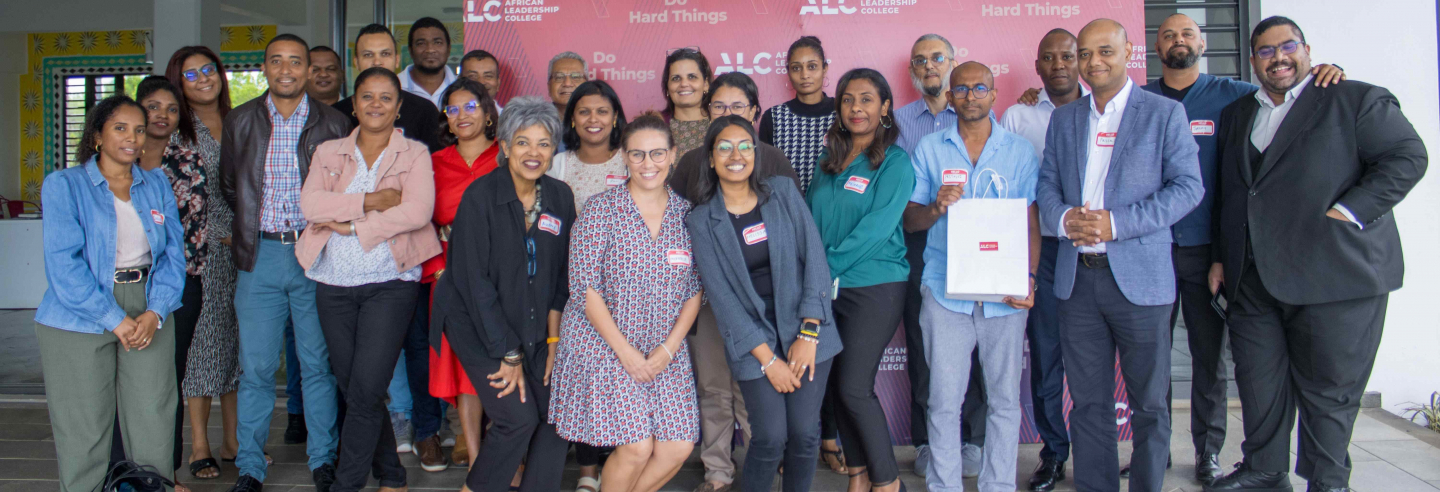African Leadership College (ALC)- SeDEC partnership
In the context of the 2024 theme of the African Union: “Educate and Skill Africa for the 21st Century”, the African Leadership College (Mauritius campus) has partnered with the Service Diocésain de l’Education Catholique (SeDEC) in a bid to interrogate the dominant narratives about Africa and, at the same time, provide first-hand exposure to the experiential learning approach used by the university to engage students in meaningful learning. Meaningfulness indeed stands at the core of this institute’s motto, which encourages its students to choose their mission and not (only) their major!
A first event was thus held on the ALC campus in Pamplemousses on the 13th June for the benefit of representatives of 16 diocesan and congregational Catholic secondary schools. After a campus tour facilitated by two cheery foreign students, participants were greeted by the university’s senior leadership, namely Dean Jeremy Ruiters and Academic Director Stephen Naicken. Their addresses have allowed us to become more familiar with the mission and vision of this university which hosted its first cohort of students in 2015 and currently boasts of a staff coming from some twenty different countries.
As participants were afforded insights into prevailing representations of Africa and the place of Mauritius/Mauritian education within Africa, they were able to revisit the commonly established connections between the continent and the usual labels pertaining to political instability, mismanagement and associated ills. Light was thus shed on the often-untold tales about Africa, such as, for instance, on Rwanda, which became the first country in the world to have a majority of female parliamentarians.
Participants were also invited to view through new prisms the ties that bind Mauritius to the continent against the backdrop of the Agenda 2063 (“The Africa We Want”) of the African Union. “Should Mauritius be solely viewed as a trading platform between Asia and Africa for commercial opportunities to be made there?”; “Is Africa poor?”; “Where should the solutions to Africa’s problems come from?”; “How can an education that places the human person at the centre of preoccupations (Pope Francis’s Global Education Compact) be an answer to Africa’s challenges?” These were some of the questions that resonated in our minds as we embarked in dyads, triads or larger groups in the engaging experiential learning activities designed for us by ALC’s Faculty Head, Audrey Bracey Deegan, and Programme Lead, François Sarah.
The concluding thoughts of a participating educator rightly encapsulated the group’s experience: “We attended the roundtable thinking it would all be about content, but we’re leaving with the realisation that it’s more about structure; and that we can actively contribute to our own learning, unlearning and relearning about Africa!”
Before ending, special thanks to Tineyi Madungwe, and Melissa Doolaub, respectively Faculty member and Country representative at ALC, who painstakingly worked towards the materialisation of this partnership with the SeDEC.

Reports and images of the event on ALC’s LinkedIn page: https://www.linkedin.com/posts/alueducation_education-learning-innovation-activity-7208810673391157248-I_pH
The forthcoming steps
After the inaugural capacity building roundtable for educators, the latter will be invited to conduct an experiential learning session on ‘Africa’s Grand Challenges and Opportunities’ within their respective school. They will particularly be invited to reflect on the experience from various perspectives. These insights will be shared during a second roundtable of educators. Subsequently, students at school will be invited to undertake a project aiming at shifting the narrative about Africa with their peers at school. As a grand finale, students and educators will gather again at ALC for a presentation by the students of the different initiatives led for the benefit of their fellow schoolmates.


